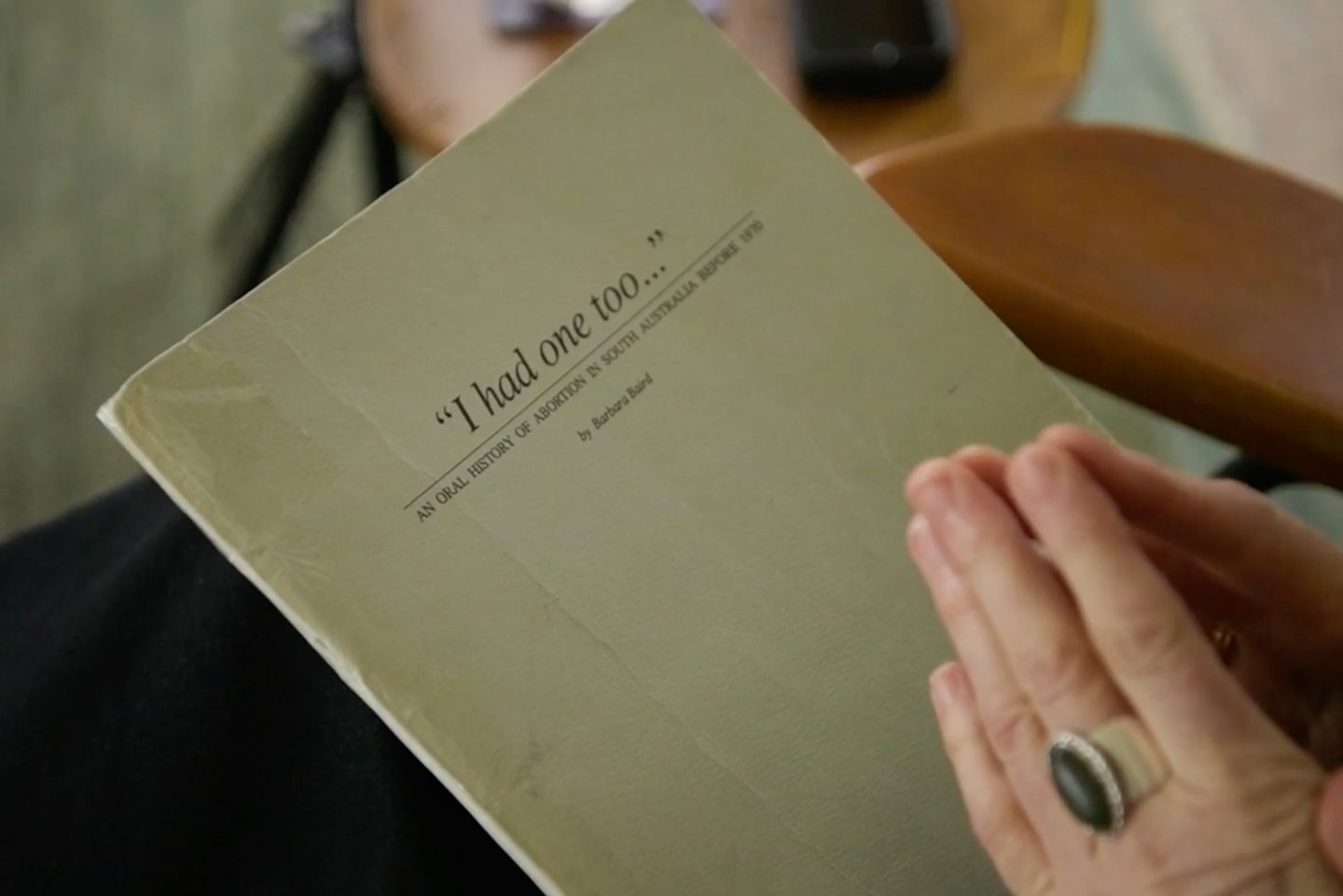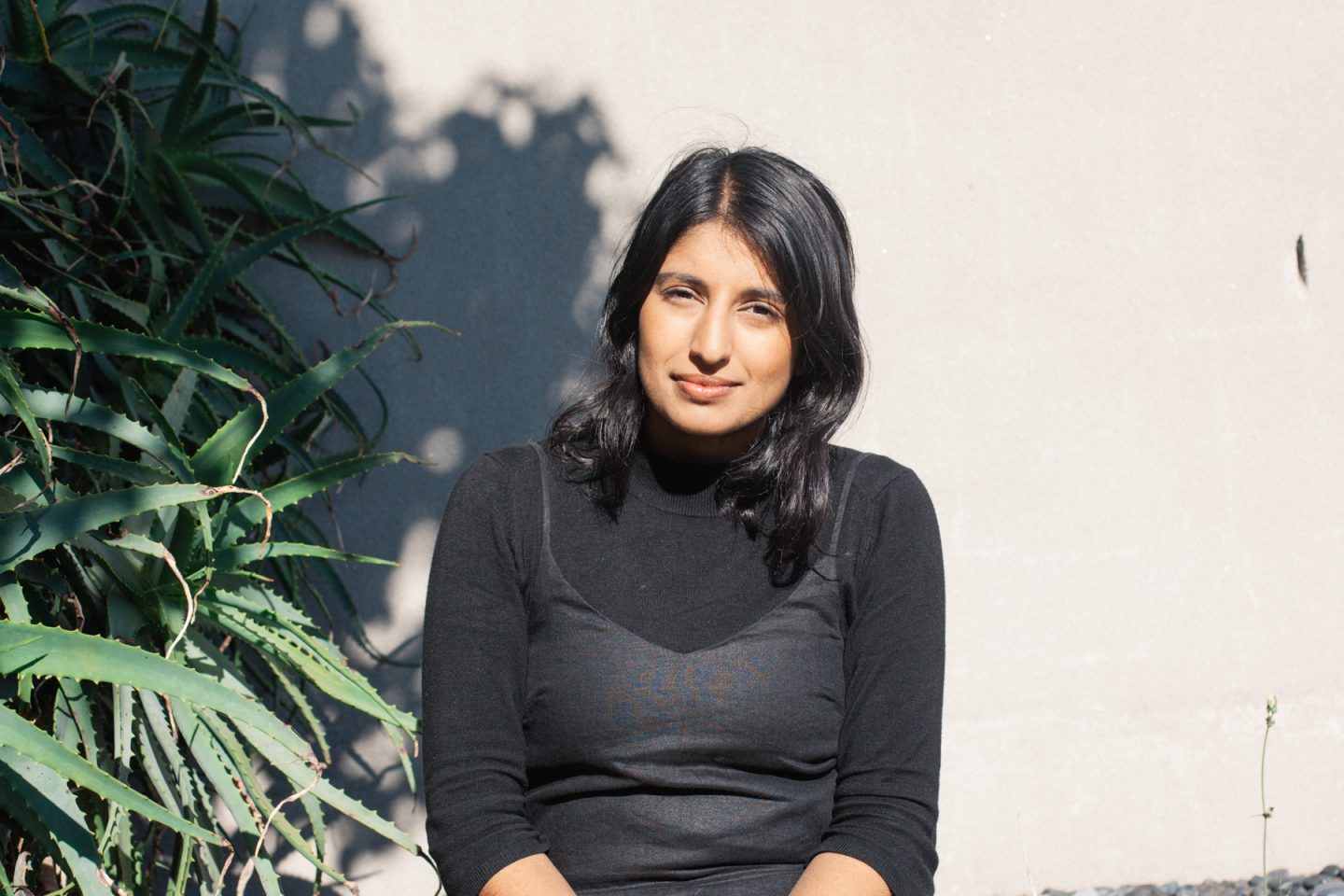Through interviews with women who have had an abortion, the co-founders of I Had One Too want to discuss how laws and public perceptions around abortion impact safety and access to the service. While South Australia took the lead in allowing access to abortion 50 years ago, we now lag behind much of Australia – New South Wales is the only other state where abortion remains in the criminal code. Tammy Franks MLC introduced a bill to the state’s upper house in December to decriminalise abortion and create safe access zones around those providing abortion services. While waiting for parliament to debate the bill, supporters of abortion in South Australia point to stories such as those told through I Had One Too as to why the legislation is so important.
Priya Pavri, the project’s interviewer, is a storyteller with an interesting tale of her own. She spent time in Iraq working for CADUS (a German emergency response NGO) where she helped Iraqis who had been the target of Daesh fighters. Pavri is also an emerging curator – she is behind the upcoming Illusion exhibition at Nexus Arts from July 4 – and is currently the general manager of Next Wave Festival. Pavri says I Had One Too started as a chat over coffee with one of the co-founders of the South Australian Abortion Access Coalition (SAAAC) and Madeleine Parry, a local documentary filmmaker best-known for her work behind the camera of Hannah Gadsby’s Nanette. They began to throw around “some ideas about how we could use film [not just] as an artistic tool but also as a social justice tool to create change”. Two other collaborators came on board: Georgina Savage, a documentary filmmaker who has taken the reins from Parry – who is spending more time overseas due to her flourishing career (though Parry remains a consultant on the project) – and Julia Pattenden, a graphic designer.
Kate, a Victorian AOD worker
The project takes its name from Flinders University Associate Professor Barbara Baird’s 1990 PhD research project that told stories of illegal abortion: I Had One Too – an Oral History of Abortion in South Australia Before 1970. Pavri says that after learning of Baird’s work, the team thought about how they could take that simple concept and reimagine it for the present day “where we have technological platforms [to communicate] through the web, and through mobile phones and social media”.
The use of Instagram, in particular, allows the project to extend beyond traditional audiences. This was a conscious choice. “I think the key benefit of social media is its reach, and its ability to be very accessible to people all around the country,” she says. I Had One Too is a “space where women and supporters can hear about other people’s experiences” but in particular the “non-tangible, unique and nuanced experiences and feelings that different women have around having an abortion”.
While the project aims to share a diverse range of stories through its current platforms, Pavri wants to build “opportunities for women to share stories if they don’t want to be identified” realising that these remain “really important narratives”. Emphasising the importance of diversity in the project, Pavri says “the narrative around abortion in Australia needs to be an inclusive one”.
 30 years on, Barbara Baird’s research project has inspired a new initiative to collect women’s stories
30 years on, Barbara Baird’s research project has inspired a new initiative to collect women’s stories
“There is no point having a conversation that excludes First Nations people, people of colour and of culturally diverse backgrounds,” she says.
Originally from Port Pirie, Pavri says I Had One Too had “a lot of people from regional and rural areas write in and share their experience” with them. “It’s definitely one of my objectives to go out to speak to as many of them as we can,” she says. “An important reason behind the need to reach beyond Adelaide and other major centres is a key flaw entrenched in South Australia’s out-of-date legislation. Pavri says that the “different levels of access to RU486, the abortion drug, means that there are different levels of disadvantage for women in regional and rural areas around Australia”.
Part of the work being done by I Had One Too is to help educate women and supporters around services available. “It would be very remiss of us or anyone coming into this space to not acknowledge the work that groups that have been around longer than [us] have been doing,” Pavri says.
“One of the key things that we set out to do was partner with many organisations and groups … that are on the ground, providing services or engag[ing] with community and with people that are affected by abortion legislation. [We] started to work with [national reproductive health organisation] Marie Stopes and they provided initial seed funding to us as a means to grow I Had One Too [and we are] in conversation with SAAAC and other groups around the country.”
 I Had One Too co-creator Priya Pavri
I Had One Too co-creator Priya Pavri
While working primarily as a storytelling platform, Pavri sees the work as just one part of a bigger movement for abortion destigmatisation and access. She says Savage, Pattenden and herself “acknowledge the comprehensive politics of reproductive justice cannot rest on positive representation of abortion alone”.
What I Had One Too can do, according to Pavri, is help remind people that “this is an access to women’s health issue”, words echoed in the April High Court judgement enforcing safe zones around abortion clinics in New South Wales. Pavri draws on the judgement speech, saying “the issue of whether or not to have or avoid pregnancy is not a political decision”.
“It’s important to remember that when we talk about access to abortion, that’s it’s not a political issue, it’s a women’s health issue. These stories – they are about that, about the importance of this health service.”
Kylie Maslen is a writer and critic from Kaurna/Adelaide, and the author of Show Me Where it Hurts: Living with Invisible Illness (Text Publishing).
Related Article
Madeleine Parry on truth, filmmaking and Hannah Gadsby’s new Netflix special
Get the latest from The Adelaide Review in your inbox
Get the latest from The Adelaide Review in your inbox